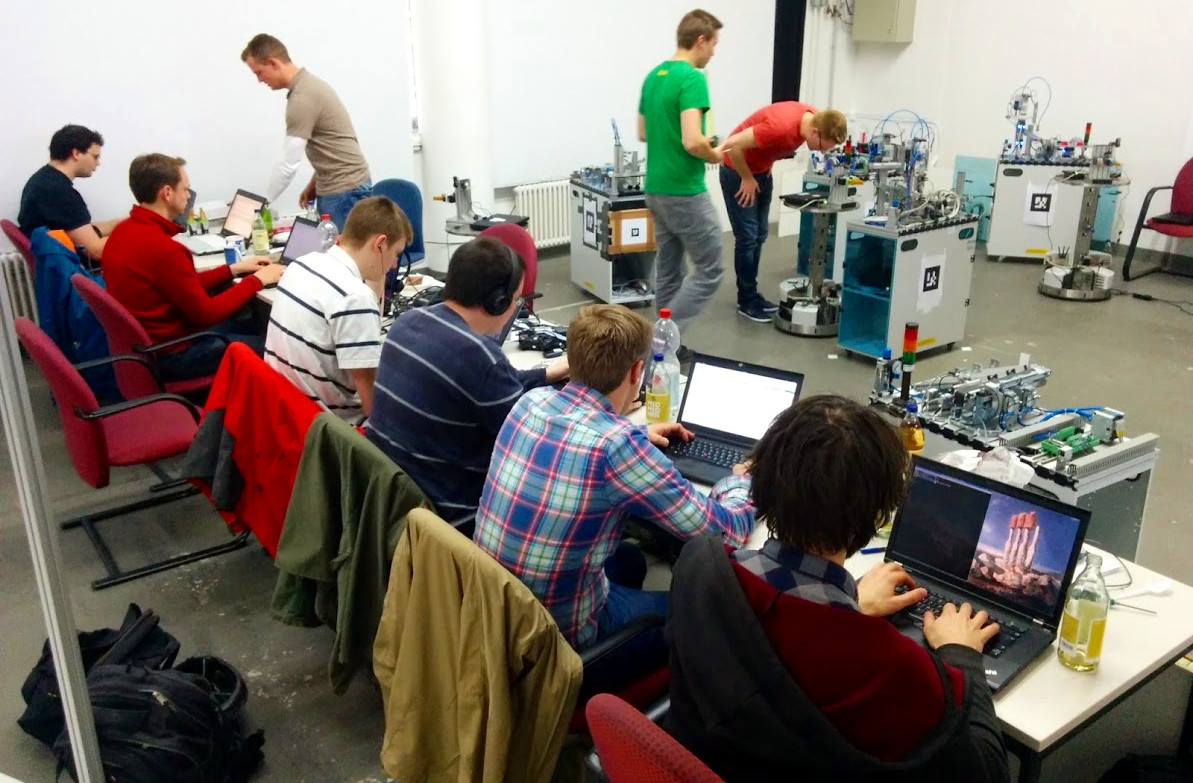Sponsors
- Festo Didactic SE

Sponsors
- The RoboCup Federation

Sponsors
- IMA/ZLW & IfU Institute Cluster of the RWTH Aachen University

Sponsors
- Department of International Affairs of the FH Aachen University of Applied Sciences

December 7-11, 2015, Aachen, Germany
Objectives and Scope
The RoboCup Logistics League (RCLL) is one of the youngest of the RoboCup leagues. It is an application-driven league inspired by the industrial scenario of a smart factory. In 2015, the introduction of MPS processing stations and increasing the number of possible products from 3 to nearly 240 has made the RCLL more complex and challenging.
The Carologistics RoboCup team, which won the competition in 2014 and 2015, intends to organize a RoboCup Logistics League Winter School in Aachen, Germany. The purpose is to disseminate the state of the art in the RCLL. This winter school targets new and existing teams for the RCLL. For new teams it will lower the barrier to enter the competition by learning from an existing open-source software stack and simulation. Theoretical sessions will detail the applied methods in fields like perception, navigation, simulation, or behavior. This will be be supplemented by practical hands-on sessions based on the full software stack release by the Carologistics team. Open forums will allow other teams to disseminate and share their work and to point out alternatives.
Sponsors
We gratefully acknowledge sponsoring by Festo Didactic SE, industrial partner of the RCLL. The RoboCup Federation sponsors this event trough the RoboCup Federation Support for Projects for League Development 2016. Furthermore, we thank the IMA/ZLW & IfU Institute Cluster of the RWTH Aachen University for providing the venue for the event. Finally, we thank the Department of International Affairs of the FH Aachen University of Applied Sciences for their financial and organizational support. This winter school would not be possible without the generous support of our sponsors.
Program
Day 1: Introduction and setup
The general scenario and rulebook will be explained to the audience, to point out specifics to existing teams and the overall game to new ones. In the hands-on session participants can setup their development environment and perform the basic installation on the robots.
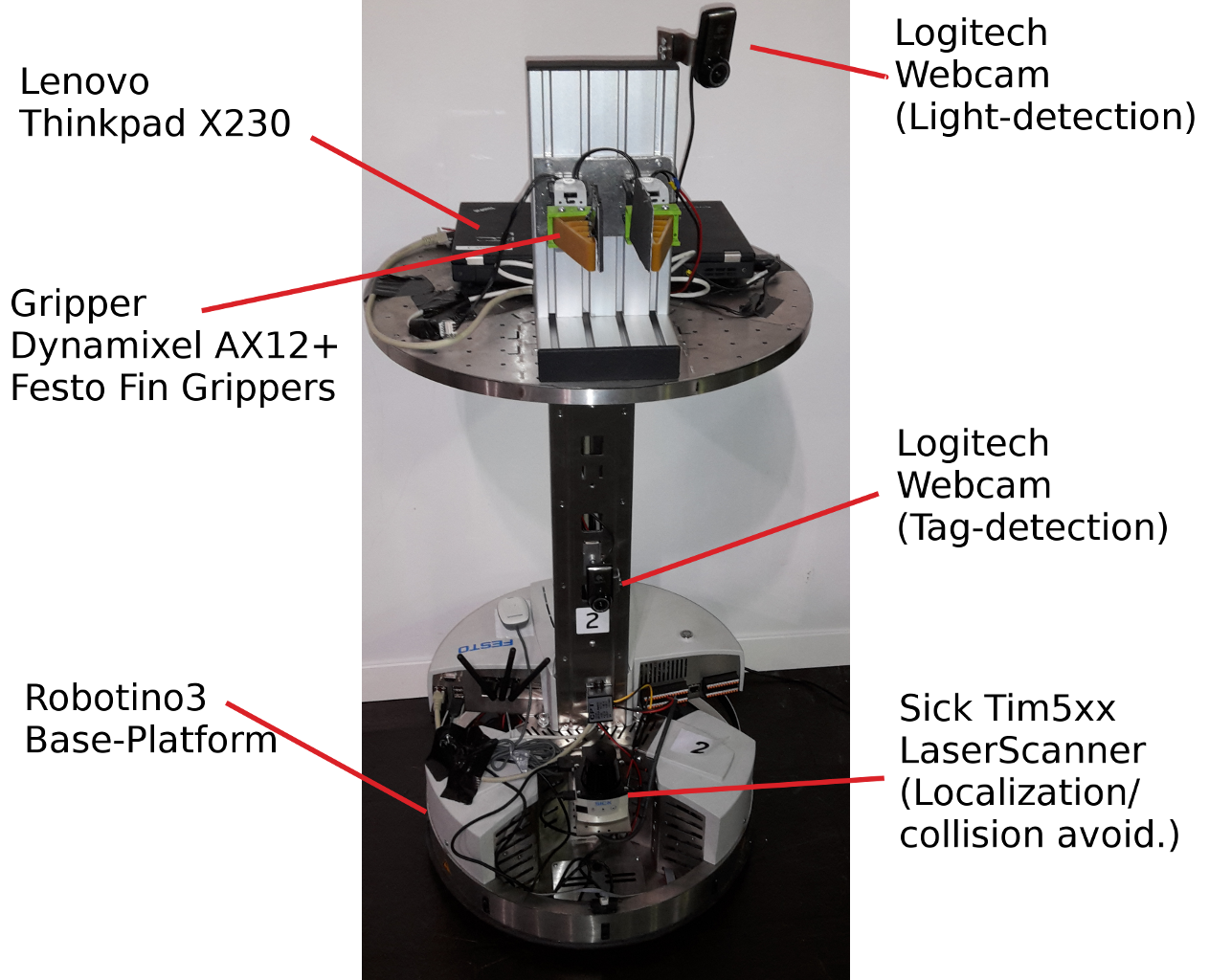
Day 2: Perception
The necessary perceptual components for machine detection and light signal recognition will be presented. The system will be configured and tuned during the hands-on session.
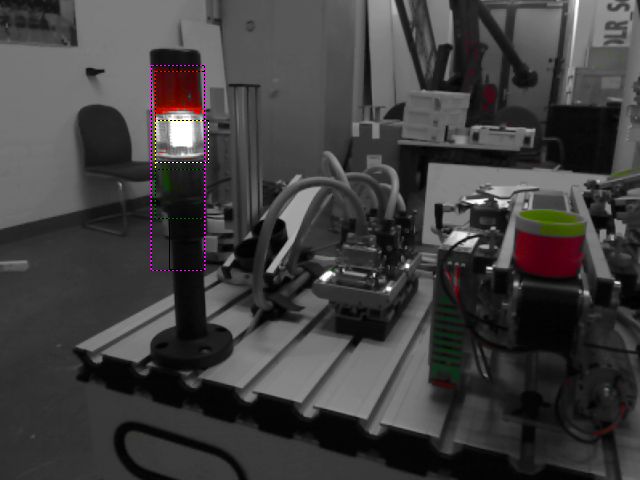
Day 3: Simulation
The simulation will be introduced and the theoretical part will also explain how to adapt the simulation to other robots, e.g. by adding different kinds of sensors or changing the model. The hands-on will comprise running full games and analyzing the overall software structure in more detail. We will also look into adding additional sensors to the robot.
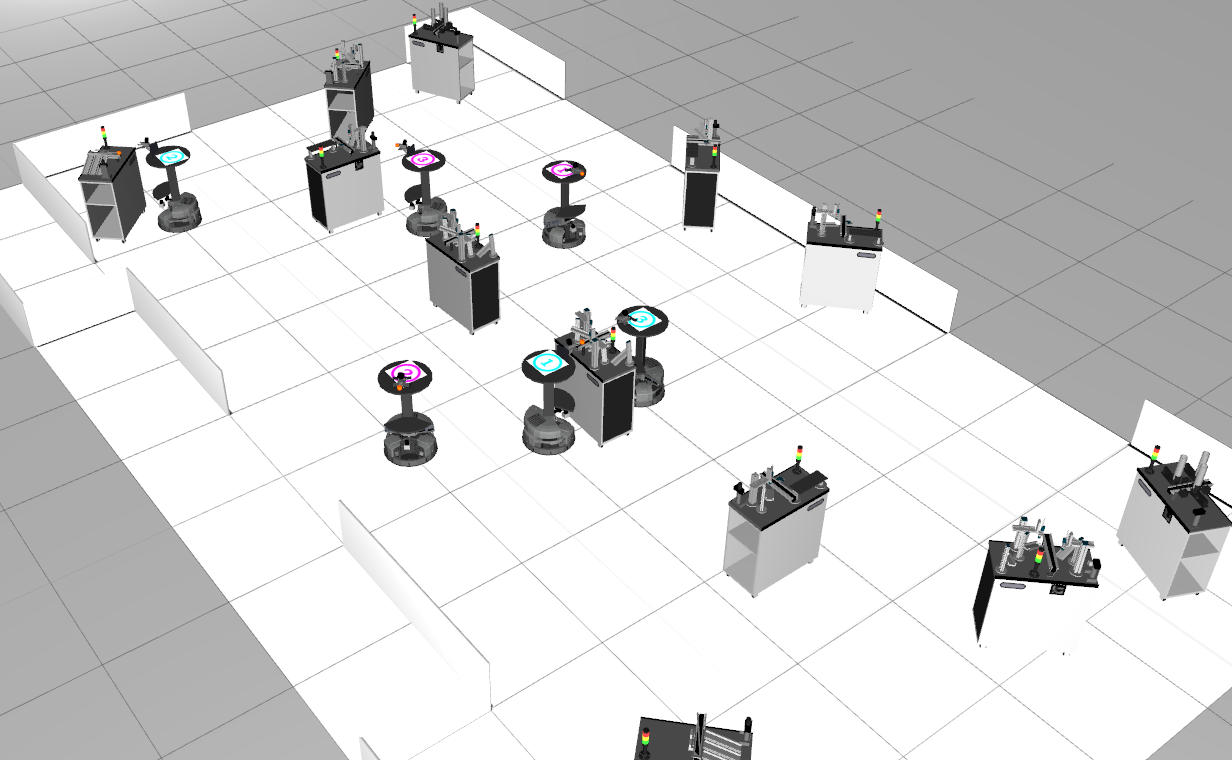
Day 4: Navigation
We will look at path planning, path realization, and collision avoidance. In particular, the dynamic topological graph generation will be introduced. The hands-on session will focus on implementing and tuning basic navigation.
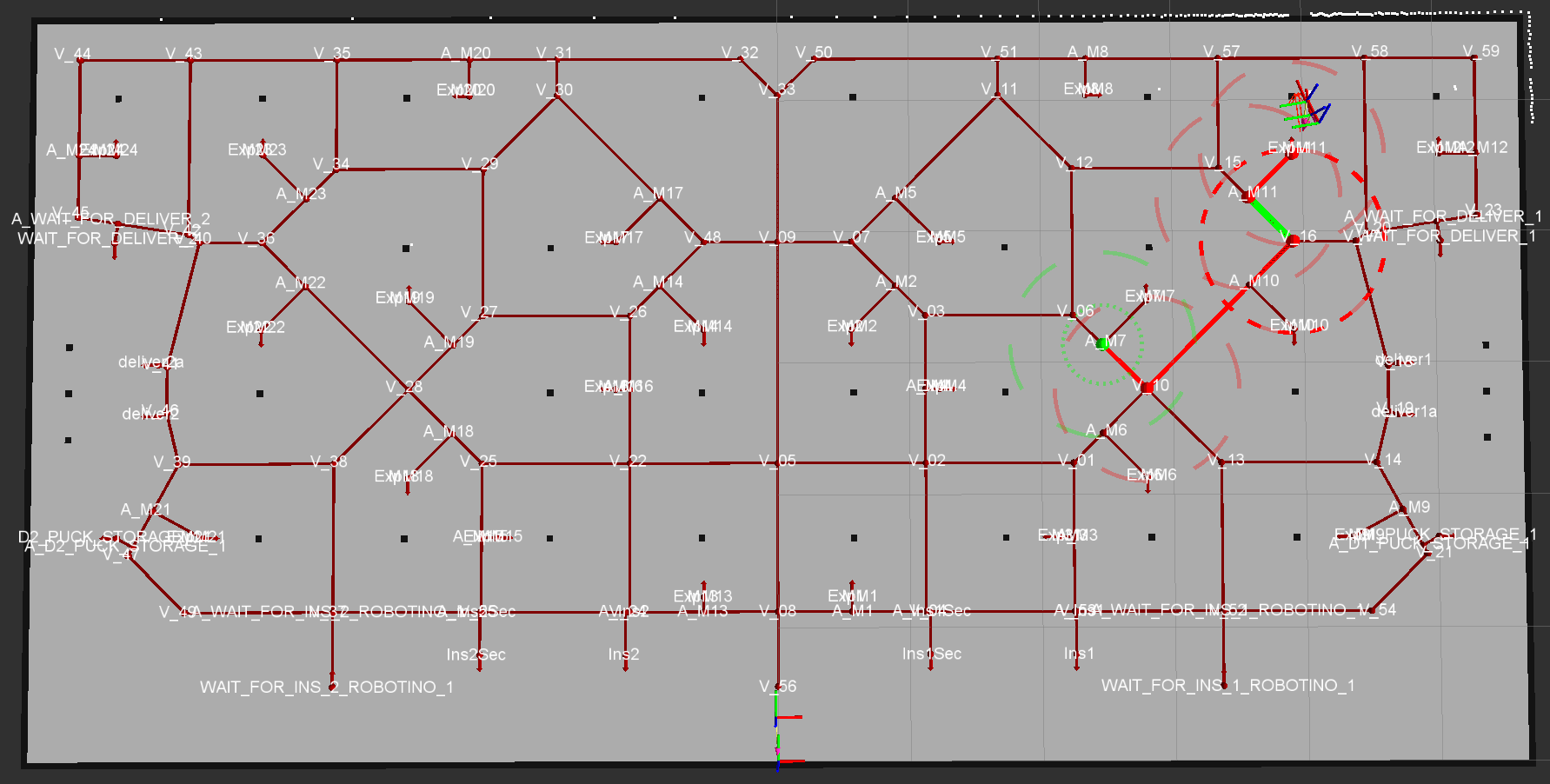
Day 5: Behavior and Agent Design
Based on a classic three-layer separation we will detail how to generate the overall coordinated behavior of the group of robots. Topics will cover basic reactive behaviors Lua-based Behavior Engine, agent design (with our CLIPS-based agent as one specific existing example), and inter-robot communication. The hands-on session will involve to create basic behaviors and a minimal agent to perform a sub-task of the competition.
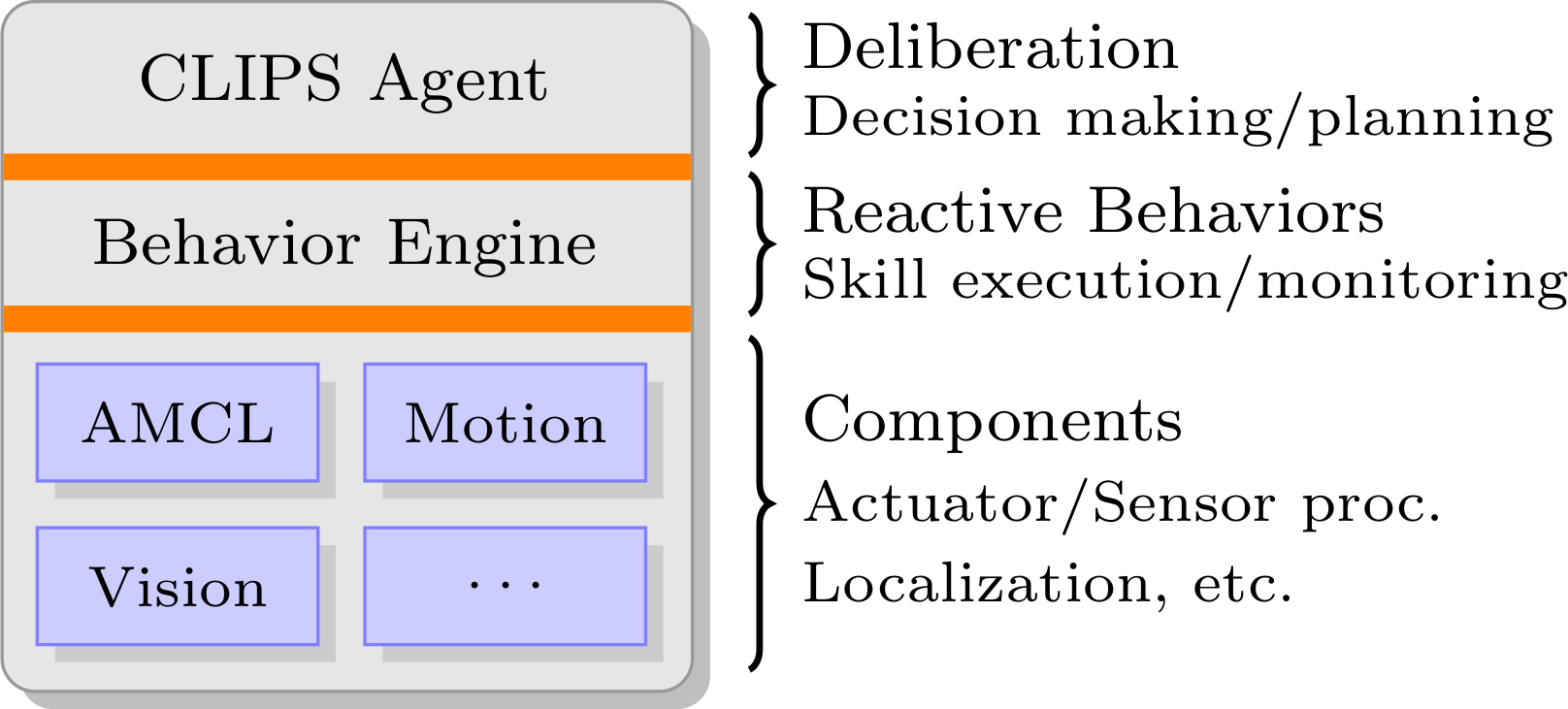
Each day will roughly be structured as follows: morning lectures will present in-depth interactive tutorials on aforementioned topics, while afternoon sessions will be focused on implementations, and will take place in a collaborative environment. We will provide notebooks running the simulation and development environment. Festo will provide a partial RCLL field based on real machines for testing on real hardware.
Participants are encouraged to bring up to one robot per team to the event. On the first day will be an opportunity to setup the system with the provided software to try it on own hardware (and take it ready-to-run home afterwards). During the open forums teams may also demonstrate features of their own systems.
Accommodation and Scholarships
We organized accommodation in A&O Hostels which you can select during the registration and which will cost 150 € for the full week.
We have limited funds to support students to attend the winter school, where not otherwise possible. To apply for (partial) travel funding, send your request by email to the organizers. It should include a cover letter explaining your interest in the winter school, funding requirements. Additionally, add a page with a short CV and current status (e.g., master or PhD student, institute), achievements in robotics, and work on relevant open source software. The organizers will select students based on available funds and student excellence.
Fees
The fee for participation is 50 Euro. It includes participation in the winter school according to the program above, lunch catering, and transport to the provided accommodation in the morning and evening. There will be a city tour as a social event.
The fees (and possibly accommodation) will be payable by wire transfer. Details will be sent on Nov. 19th after the registration closes.
Eligibility and Registration
The winter school is open to team members of existing RCLL teams as well as interested students and researchers that plan to attend RCLL in the future. This winter school focuses on best practices within the RCLL domain and attendees should leave with practical knowledge to implement solutions to RCLL challenges.
The space is limited to 30 participants. The organizers will balance seats among all interested teams. If you registered many team members, not all may be accepted for the Winter School. Registrations per team will be accepted per on a first come, first serve basis.
Use this form to register. Registration ends November 18, 2015. Notifications and payment details will be sent out on Nov 19th 2015.
Contact
- Tim Niemueller, KBSG, RWTH Aachen University
niemueller (at) kbsg.rwth-aachen.de - Sebastian Reuter, IMA/ZLW & IfU, RWTH Aachen University
sebastian.reuter (at) ima-zlw-ifu.rwth-aachen.de - Tobias Neumann, MASCOR, FH Aachen University of Applied Sciences
t.neumann (at) fh-aachen.de
Location and Venue
The winter school will take place in the rooms of the IMA/ZLW & IfU Institute Cluster of the RWTH Aachen University.
Technologiezentrum am Europaplatz
Dennewartstraße 27
52068 Aachen Germany
Hands-on Area
- Hands-on development work will be conducted in a common area consisting of group tables.
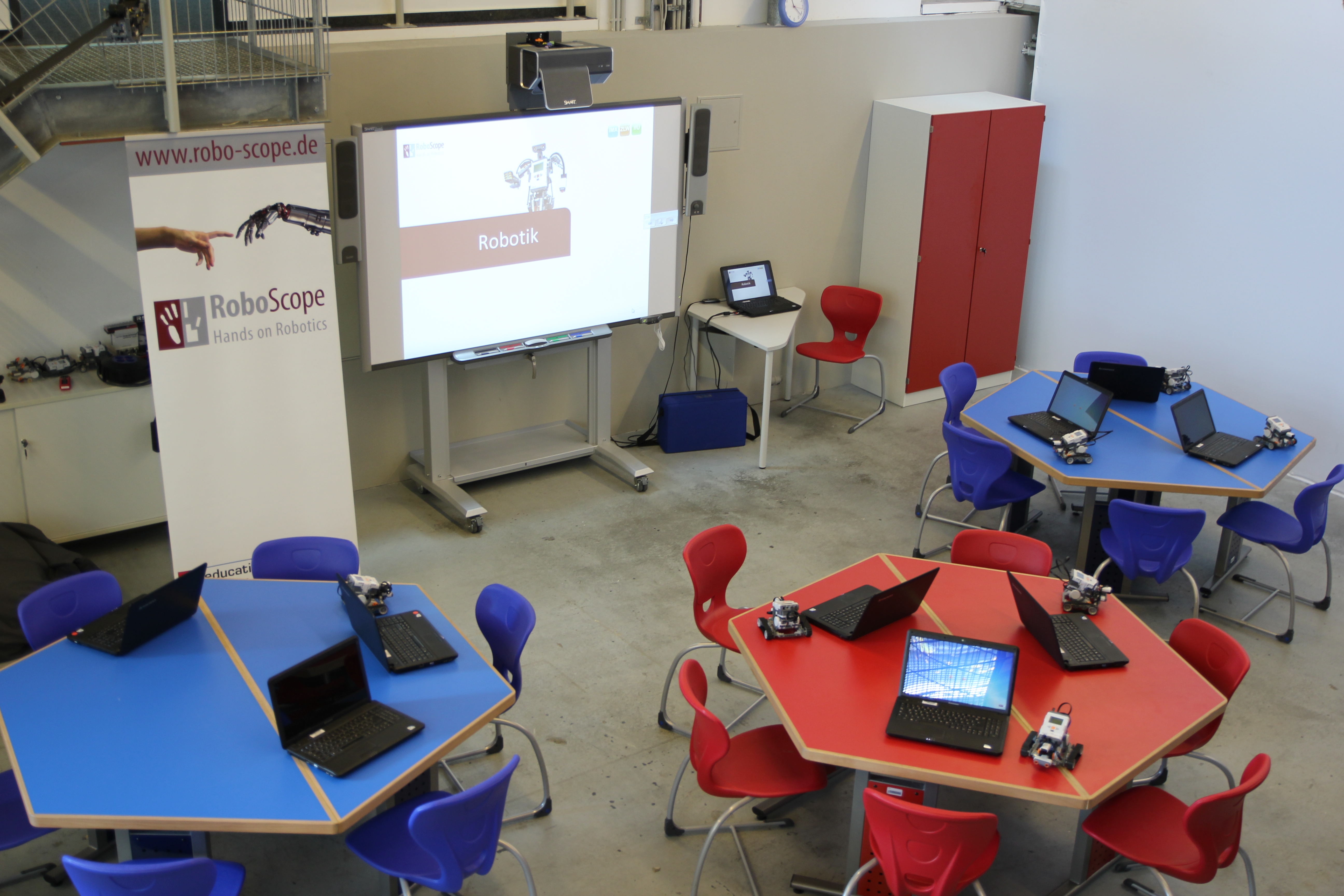
Lecture Room
- A separate lecture room will provide a quiet environment for background and discussion sessions.
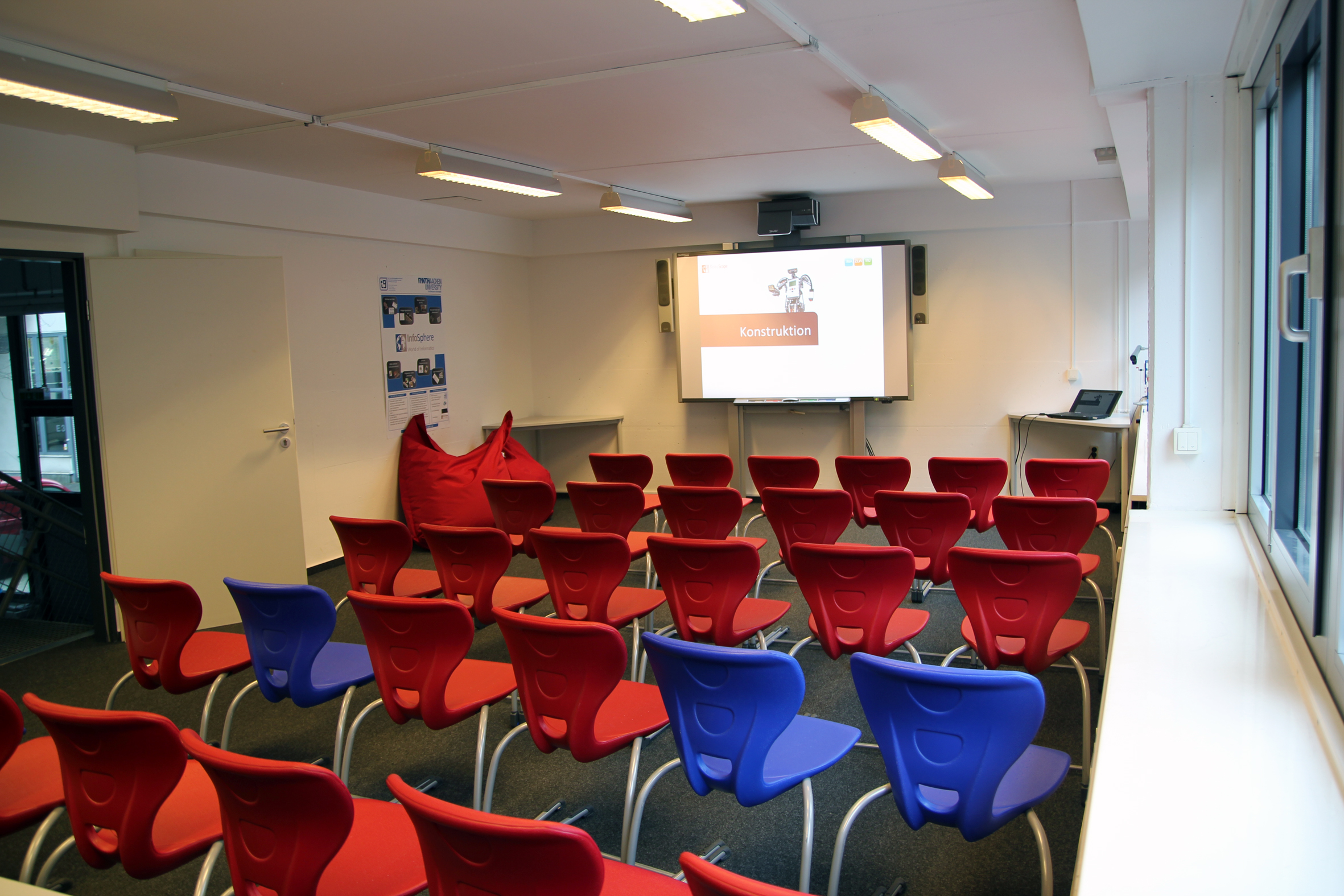
Experimental Area
- Experiments as part of the hands-on session will be conducted in an adjacent hall which will feature a partial RCLL field.
